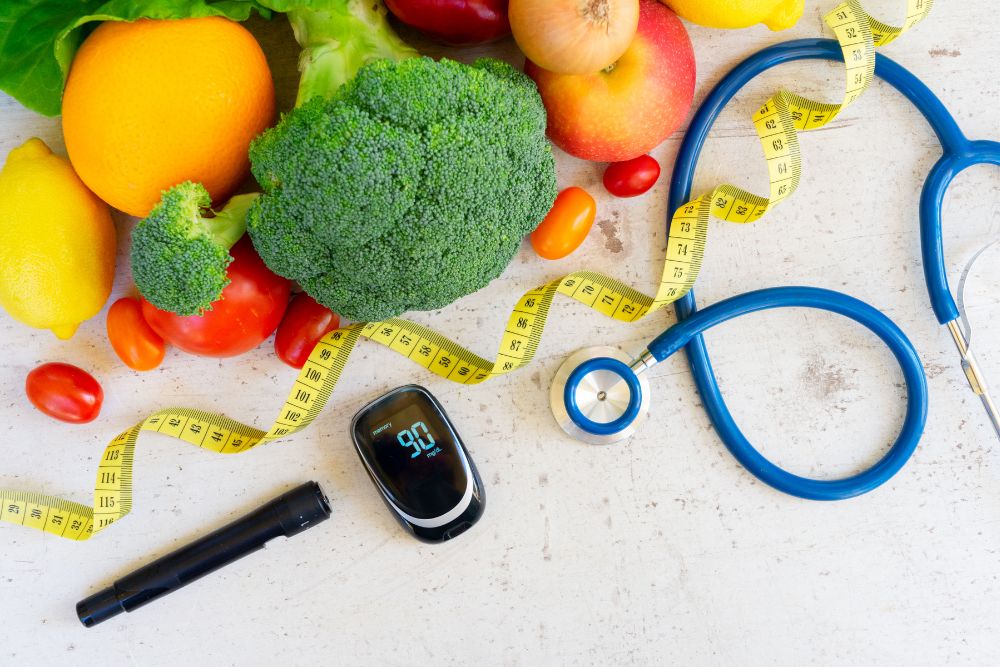3 Tips For Protecting Your Vision Against Diabetic Retinopathy

Diabetic retinopathy is a condition that involves damaged blood vessels in the retina, typically caused by unmanaged diabetes. Over time, high levels of blood sugar cause blood vessels to weaken and leak, which damages vision. Symptoms vary, but can include floaters, blurriness, red spots, inability to perceive color, and difficulty adjusting to the dark. Left untreated, diabetic retinopathy can lead to blindness.
This condition can affect anyone with diabetes – from the more common type 1 and type 2, to gestational diabetes, which affects pregnant women. Mild cases of diabetic retinopathy involve recommendations similar to diabetes management: staying active, eating well, and sticking with your medication regimen. For more advanced cases, surgery may be necessary.
Although there is currently no cure for diabetic retinopathy, you can take action to protect yourself against this condition or impede its progression. Let’s take a look at three of the simplest steps you can take to preserve your retinal health.
1. Schedule Regular Eye Exams
Like so many other conditions, it’s best to diagnose diabetic retinopathy early. The trouble is diabetic retinopathy has no symptoms when it first begins. This is why it’s so important to meet with your eye doctor at least once a year for a regular exam. Part of this exam is a dilated pupil test, which will allow your doctor to see into the back of your eye and observe any damage to your retina. A regular eye exam also gives you the chance to inform your doctor of any changes you’ve noticed in your vision. This way, you can catch the disease early and prevent it from progressing.
2. Eat a Diabetic Eye Diet
Eating a diabetic eye diet can decrease the likelihood of diabetic retinopathy. You may have heard it before, but, “Eat a rainbow,” is good advice. You want a mix of colorful fruits, veggies, and lean proteins (like fish) in your diet to keep your blood sugar at healthy levels. Additionally, cut back on salt. See what other herbs and spices you can experiment with to give your food that extra kick. When it comes to fat, focus on consuming a moderate amount of healthy mono and polyunsaturated fats, which can be found in avocados, olive oil, nuts, and fatty fish (salmon, sardines, etc.). Try to keep your consumption of trans and saturated fats at a minimum, which will not only help manage blood sugar, but also maintain a healthy body weight. This is doubly useful, as excess weight and obesity can increase your risk of developing diabetic retinopathy.
3. Take a Recommended Vitamins
Diabetic retinopathy is correlated with deficiencies in a number of essential vitamins and minerals. The good news is supplementing your diet with these vitamins and minerals is a safe, easy, and affordable way to minimize your risk of developing the condition. Research has shown that lutein, zeaxanthin, vitamin C, vitamin D, vitamin E, zinc, copper, alpha-lipoic acid, n-acetylcysteine, and complexes of B1, B2, B6, L-methyl folate, and methyl B12. If you felt overwhelmed reading that list, don’t worry. The National Eye Institute has formulated a supplement called AREDS2 which combines copper, zinc, lutein, zeaxanthin, vitamin C, and vitamin E in a single format.
Schedule a Diabetic Eye Exam With Retina Group of Florida
If you are living with diabetes, have already been diagnosed with diabetic retinopathy, or are concerned about your possible risk factors, schedule an appointment with one of our diabetic eye specialists at Retina Group of Florida. We serve many local communities throughout the Florida Gulf Coast area.


